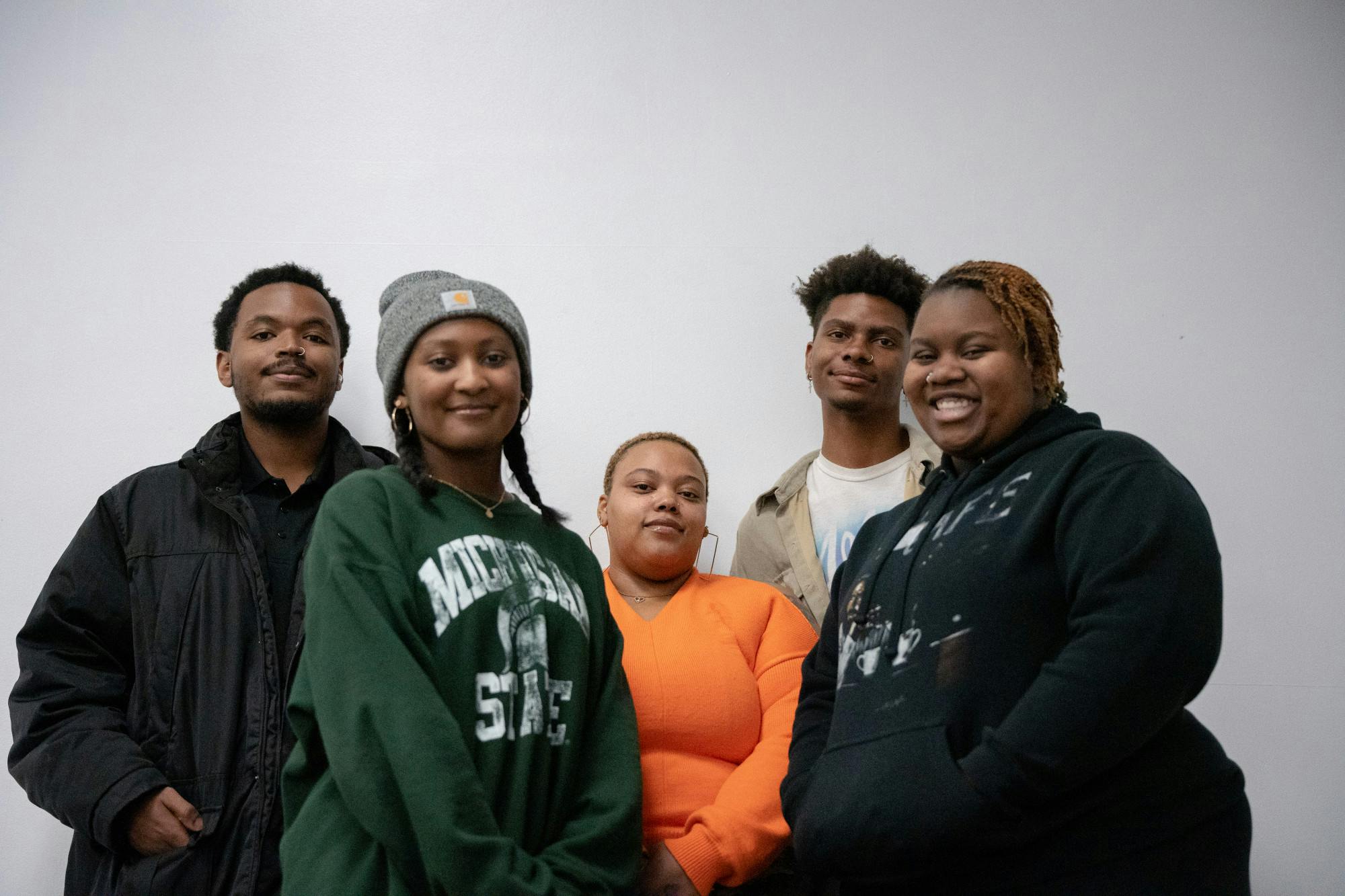Psychology senior Ajhane’ Kindle was a senior in high school when the pandemic hit. Like many people stuck at home, her mental health started to suffer. When she arrived at Michigan State University, it only got worse.
Adjusting to a predominantly white university was hard and Kindle, who is Black, often felt like she didn’t fit in at MSU. Luckily, since she had years of experience in therapy, she was able to manage her mental health.
Soon, Kindle began making friends at MSU, but she found they did not have the same emotional tools. As a result, Kindle often helped her friends with their mental health. When she realized the impact she had on her friends, she decided to create a student organization to help more people.
“I've always been a very huge advocate of mental health,” Kindle said. "I'm helping my friends when I don't even know I'm helping them. I just talk to people and they feel better. So (l realized) maybe this is my calling. Maybe I should just go out and do it.”
Kindle created the Black Mental Health Coalition, or BMHC, a group devoted to fostering a safe space and loving environment for students to discuss their mental, physical and spiritual health.
When human biology sophomore Jourdyn Starr heard about the new club, she thought it was a good idea to have a space that catered to Black students’ mental health on campus.
“There's not a lot of outlets for Black people to just express how they're feeling, and there's a lot of stuff that we go through that other people wouldn't understand,” Starr said. “It's nice to be able to talk to someone who shares those experiences and you can experience those together because it's hard to constantly go through that alone.”
The club has helped Starr with the transition from high school to college.
“This organization has made the campus feel smaller, ‘cause this campus is huge and most of the people on campus do not look like us,” Starr said. “This organization has helped (me find) a community on campus I can really identify with and just have a good time and open up, talk about deep stuff and still feel included.”
The club also enabled Starr to feel comfortable discussing her mental health. She said people have dismissed her mental health struggles in the past, but coming to the BMHC validated her feelings.
Psychology senior Shaurice Brunson said mental health is often stigmatized, especially within the Black community.
“I think mental health overall is not talked about a lot, but also within the Black community it’s really not talked about,” Brunson said. “It's getting there, but this is the first step to change."
As a result, the executive board has learned that it can best facilitate the club meetings by creating a judgment-free space.
“We don't want anybody to feel shame about it, (we try to) take the shame away from mental health,” Starr said. “It's nothing to be embarrassed about. It's just a reality.”
Kindle said “what happens in this organization, stays in the organization," since none of the club officers are mandatory reporters. This allows members to open up and experience the most growth.
“The first time someone comes, they always cry,” Kindle said. “They're gonna be really emotional, but they're gonna feel better when they leave because they know that they have this space. And when you come the first time, you're not gonna stop coming.”
Each meeting includes a mental health "check-in" and an activity. One of the activities involved writing negative thoughts on a plate and then breaking the plate, which Brunson said helped her feel lighter. Brunson said going to the meetings has also helped her learn new methods to relax and feel happier, as well as given her new perspectives on mental health.
The most helpful aspect of being in the BMHC, Brunson said, is knowing that there is always someone there for her.
For computer science sophomore Ryon Baldwin-Williams, having a space specific to his community has helped him be vulnerable.
“We’re here just to be that space for people to let those feelings out, and we've seen groups of people cry and have really important moments here,” Baldwin-Williams said. “I feel like through this club I've gotten … different tools that I can use when I'm going through a thing. So it's not that we're here to fix the problems, but we're here to help you address those things that you don't (address).”
This is exactly what Kindle strives for as the BMHC president, and she hopes to spread this to a wider community. Next year, she will pursue her masters in social work at MSU and she plans on opening a practice to help minors in the justice system with an emphasis on Black youth.
Through this, Kindle hopes that she can address Black mental health and teach others that it’s okay to focus on their mental health and take care of themselves.
“(I’ve learned) that a lot of the Black community is dealing with pretty much the same thing,” Kindle said. "I'm not gonna lie, we're very strong people, but sometimes we just need to sit down, and cry and break down, and just have that moment to ourselves and with people that love us and care about us.”







